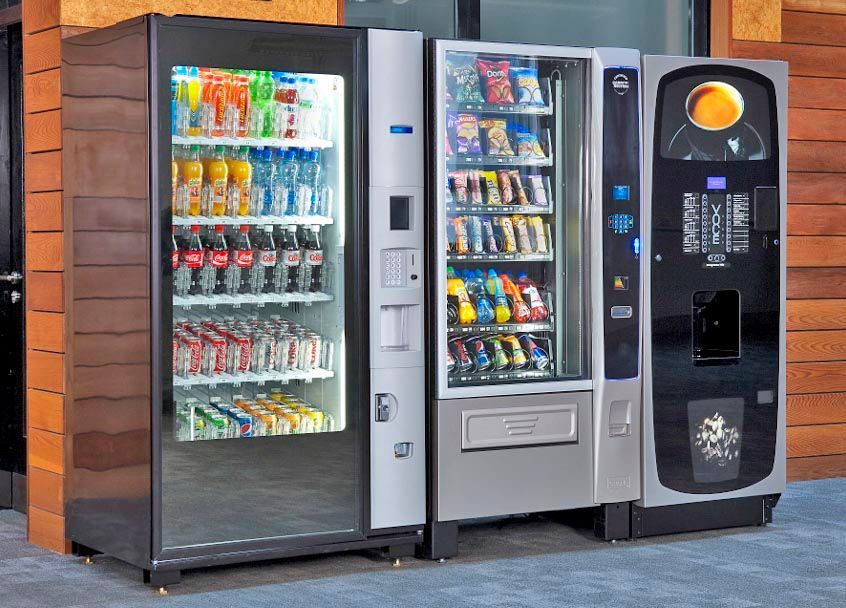Smart Contracts | NFTs
The best way to illustrate this is a vending machine. When someone wants a drink or a snack out of a vending machine, they do not need to call for help, or ask anyone, they simply provide the proper inputs and the output is automated. That is effectively a smart contract.

Now that we have a wallet set up and have covered basic transactions, we just need to address ‘smart contracts.’ At this point most of you, whether you understand what it is or not, have heard of an NFT. NFT means non-fungible token. Briefly, fungible means that we can swap one for another, like if I have a dollar and you have a dollar, and we trade, it’s basically the same. That’s fungibility. Non-Fungible simply means that it is unique and we cannot swap one for another. Most everything you own is “non-fungible” in this way. An NFT is a smart contract.
A smart contract is a self-executing contract with the terms of the agreement between buyer and seller being directly written into lines of code. The code and the agreements contained in it exist across a distributed, decentralized network (aka the blockchain). The code controls the execution, and transactions are trackable and irreversible. Smart contracts permit trusted transactions and agreements to be carried out among disparate, anonymous parties without the need for a central authority, legal system, or external enforcement mechanism.
The best way to illustrate this is a vending machine. When someone wants a drink or a snack out of a vending machine, they do not need to call for help, or ask anyone, they simply provide the proper inputs and the output is automated. If you put in the money, then you get what you paid for. It’s that simple. That is effectively a smart contract. It is a simple code that facilitates the transaction.
While blockchains can be described as a distributed ledger, keeping record of which wallet owns which coin and who has what to spend, the Ethereum blockchain is also a virtual machine that has the ability to execute code. This function enables smart contracts, unique tokens (NFTs) which have a code embedded into them that can execute utility upon certain inputs.
So what? Why might this be useful? Let’s take Kickstarter as an example, Kickstarter is a crowdfunding platform where projects can raise money from a collection of supporters and once their goal is achieved, the platform debits the supporters and credits the project. This is a great platform that has served many projects well. It also necessitates the trust of a third party broker, namely Kickstarter, to debit and credit appropriately. This is a great example of a function that can be done by a simple code or ‘smart contract’ on the blockchain. Instead of trusting any third party, a smart contract has a wallet address of its own, can hold money from supporters within itself, is basically impossible to tamper with, and the distribution or output of the contract is automatic and validated by everyone on the network.
Smart Contracts are Actually Brilliant!
Here’s what smart contracts give you:
Autonomy – You’re the one making the agreement; there’s no need to rely on a broker, lawyer or other intermediaries to confirm. Incidentally, this also knocks out the danger of manipulation by a third party, since execution is managed automatically by the network, rather than by one or more, possibly biased, individuals who may err.
Trust – Your documents are encrypted on a shared ledger. There’s no way that someone can say they lost it.
Backup – On the blockchain, documentation is duplicated many times over across the many nodes that make up the network.
Safety – Cryptography, the encryption of websites, keeps your documents safe. There is no hacking the blockchain.
Speed – You’d ordinarily have to spend chunks of time and paperwork to manually process documents. Smart contracts use software code to automate tasks, thereby shaving hours off a range of business processes.
Savings – Smart contracts save you money since they knock out the presence of an intermediary. You would, for instance, have to pay a notary to witness your transaction.
Accuracy – Automated contracts are not only faster and cheaper but also avoid the errors that come from manually filling out heaps of forms.
There are so many use cases for this technology and it has only just begun. The possibilities are only limited by our imagination to write the code/contracts. There’s no end to the range of industries it can impact, a few examples might be payment on delivery (POD) shipments, insurance claims, law, etc. The list goes on and on. In fact just this week right here in Tampa Bay, the nation's first real estate sale will take place as an NFT!
We can’t wait to share some of the other existing use cases in the coming weeks!
